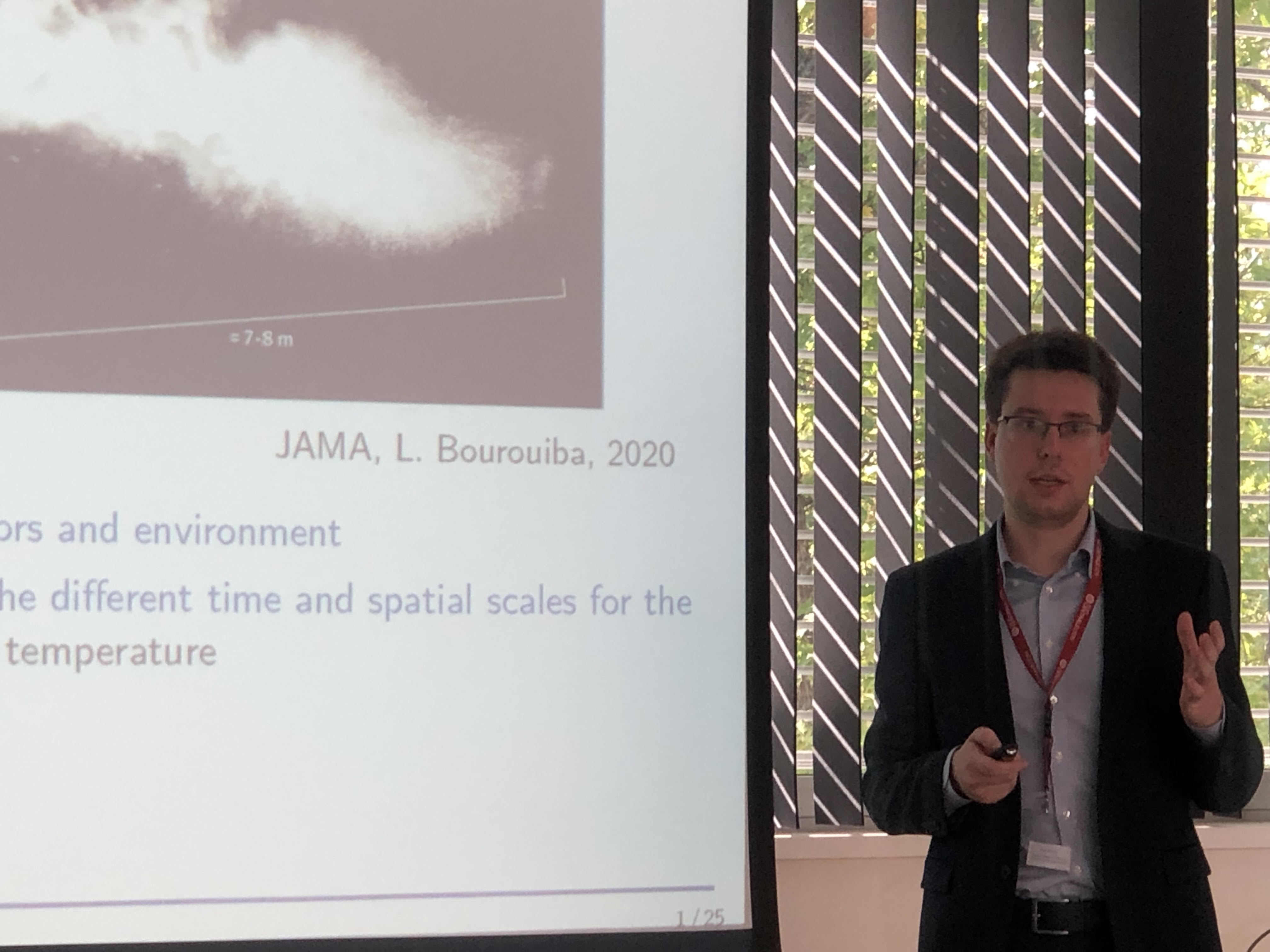17th ERCOFTAC Da Vinci Competition 2022 - Interview with Da Vinci Finalists
Nicolo Scapin

Nicolo Scapin - finalist
of 17th Da Vinci Competition 2022
a) What is the topic of your Ph.D. thesis?
My whole Ph.D. work deals with phase-changing flows such as boiling, condensation, and evaporation. I conducted my research at the Department of Engineering Mechanics of KTH University under the supervision of Prof. Luca Brandt.
The entire work can be summarized in two steps: i) developing efficient numerical methods to simulate phase-changing flows and ii) performing direct numerical simulations of evaporation occurring at a gas-liquid interface to improve our understanding of phase-changing flows in a turbulent environment. This fundamental research finds application in the combustion sector and for biomedical and environmental applications.
b) What motivates you in your work?
Different aspects motivate me during my doctoral study. First, I have always been allowed to target fundamental aspects of fluid mechanics without being obliged to target any specific engineering applications or comply with any specific deliverable.
Once I realized the freedom I had, spending endless time at the department, my research was not difficult since every task was driven purely by curiosity and sake of knowledge. Next, I was lucky with the supervision style I experienced with Prof. Luca Brandt, who granted this freedom and gave me excellent suggestions.
Finally, I have been blessed to be surrounded by fantastic colleagues at KTH. Interacting with them every day, discussing ideas and experiences, and exchanging academic and non-academic thoughts contribute to creating a nice and stimulating working environment. Therefore, even when there were challenges, I was always motivated to push myself even more and to take many scientific risks.
c) What does the Da Vinci competition mean to you?
I am thrilled to be selected among the five top finalists, and this recognition pays off for the many hours spent in the office testing ideas that never turned out to be good. Moreover, presenting the main results of my Ph.D. thesis in front of an international jury is an excellent opportunity to share my work and improve my communication and dissemination skills.
d) Where do you see yourself in five years?
Making plans in the academic environment is always challenging, so I have just one hope or desire for the next five years: find a place where I could go on doing research at a high level and be surrounded by an international and pleasant environment similar to the one I found at KTH Engineering Mechanics. Clearly, an academic placement would be ideal, even though I know it is getting harder and harder to achieve it.
e) What advice would you give to new Ph.D. students starting in fluid mechanics?
I would give three pieces of advice.
The first piece of advice is to always start your week with a clearly written plan of what to do in terms of tasks and clear objectives you want to attain. This statement seems obvious, but I increased my efficiency only when I started to plan well in advance all the tasks.
As the second piece of advice, I will use the title of a book written by a famous mathematician, John Hinch, "Think before you compute". I applied this wonderful statement by forgetting about numerical codes and supercomputers for some weeks. During this time, I read as much as possible about the already-established literature on my topic. Then, I just used pen and paper to state the objectives of my research clearly and to see if I could anticipate the results of my simulations with simple scaling laws. This activity was an iterative process since I progressively refined my research questions based on the developed theoretical reasoning. Still, it was crucial to highlight the most relevant aspects to study.
Finally, I strongly suggest that any student gets his/her hands dirty as quickly as possible. Especially at the beginning of the doctoral study, all the mistakes can be turned into a chance to grow. So, don't be afraid to make errors, and be always very critical about your scientific results.
